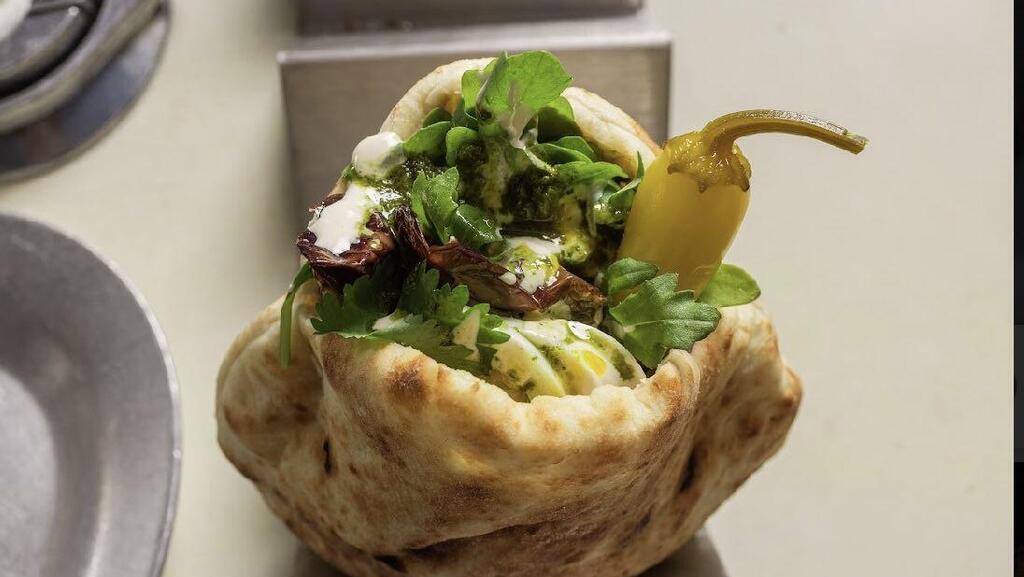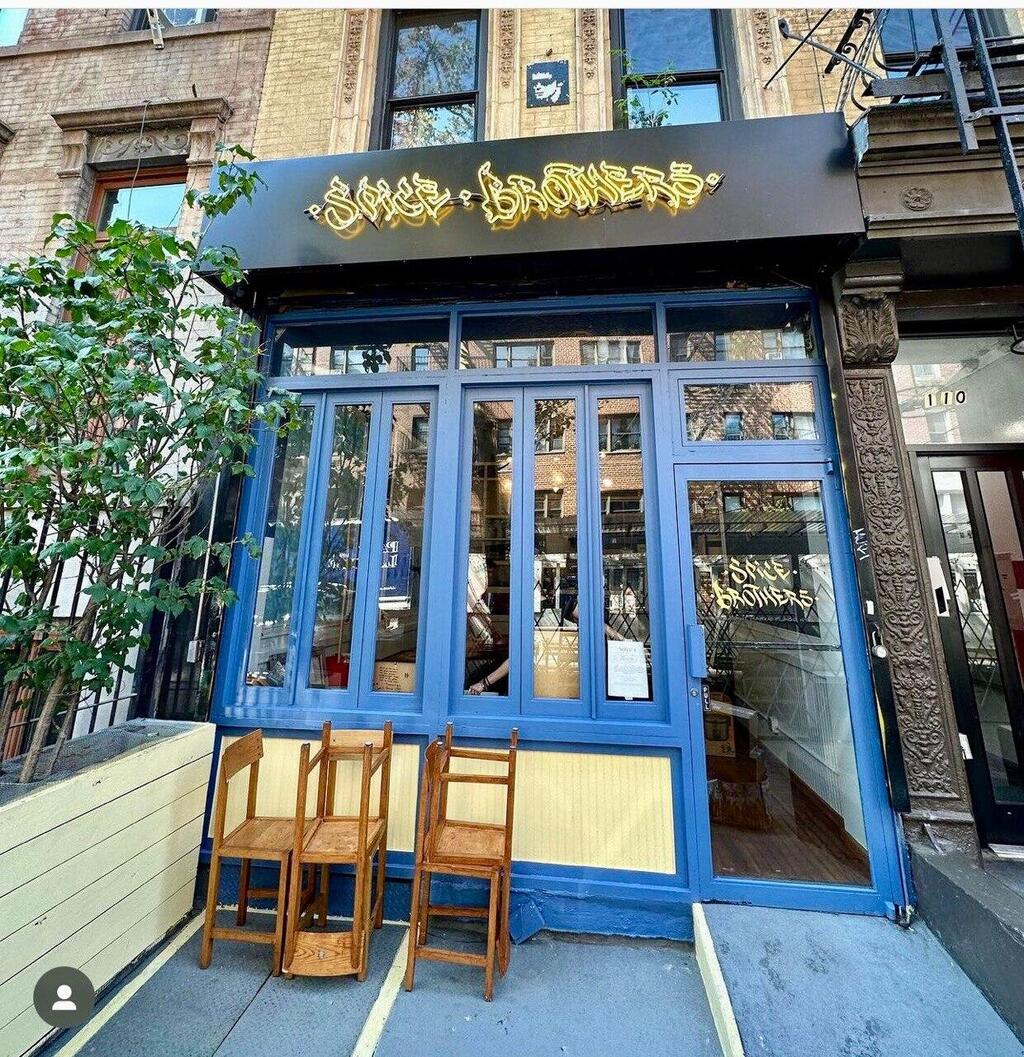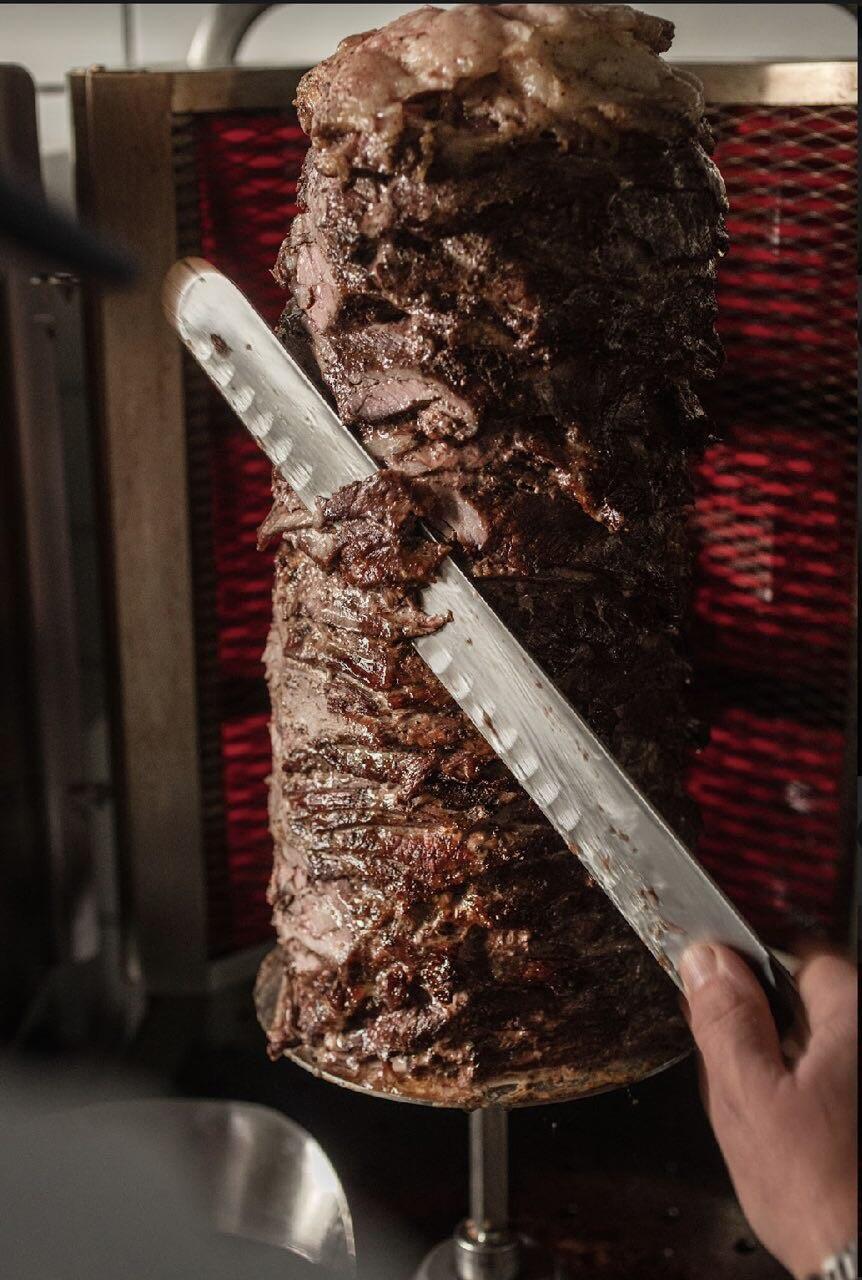Getting your Trinity Audio player ready...
A shawarma joint in New York named Spice Brothers, owned by former kibbutznik Lior Lev Sercarz, received an impressive and exceptional rating this week from Pete Wells, the esteemed restaurant critic of The New York Times. Wells dedicated his column to the restaurant and awarded it two stars.
The choice of Lev's shawarma joint is surprising for two reasons. First, given that New York has thousands of restaurants, it's notable that the food section of the most influential newspaper chose to dedicate its weekly restaurant review to street food – specifically shawarma.
The second reason is that a two-star rating is typically reserved for only a handful of restaurants considered to be excellent. The New York Times restaurant review section is highly prestigious and influential in the culinary world. and Wells' opinion carries significant weight.
"I'm shocked," Lev told Ynet. "As a loyal reader of The New York Times and its food and restaurant review section, I know this isn't easy. There are so many restaurants in New York, and I can't fathom how I even got on someone's radar. Shawarma isn't the first thing people think of when it comes to culinary discussions here. In the two-star category of The New York Times, there are restaurants I personally admire, so it's a great honor for me to be part of that," he said.
"A week ago, I received an email from Wells asking to speak with me. He said he had been to the shawarma place and dined there, but I didn't see him. During our conversation, I tried tactfully to extract more details from him and understand whether I was getting positive or negative feedback but failed. I was surprised; this review surpasses all expectations, and two stars is truly amazing in itself. I also appreciated the content of the review, focusing on unique spices and Middle Eastern cuisine."
Spice Brothers opened last September in Manhattan's East Village, with just five tables. Lev, who worked for six years under the decorated French chef Daniel Boulud, wanted to bring fine dining to street food, and gave special attention to every ingredient.
The place is named after the nickname he gave to his two sons—Spice Brothers. At the shawarma joint, two types of shawarma are sold: West Shawarma, composed of veal and spiced with turmeric, cumin, coriander, and pepper; and East Shawarma, made from lamb and beef, seasoned with baharat, sumac, and rose petals. Shawarma is served either in a pita or on a plate with yellow rice and harissa, priced at $16 for veal and $18 for the lamb-beef blend.
The menu also includes "Deborah's Falafel," seasoned with a spice mix named after the mythological falafel from Pardes Hanna-Karkur in Israel, served with pita, labneh sauce, amba, tahini, and topped with "Shawzi" spice blend.
Other specialties include "Sabich" with amba, and occasionally, a limited-quantity dish like goose liver in pita. For dessert, they offer a vegan Malabi with almond milk, coconut milk, and rose water, which has become a big hit since the shawarma joint's opening ten months ago.
Lev, well-known in Israel's culinary world, spent years as a sous chef at Daniel Boulud's renowned restaurant before establishing La Boite, a spice shop in Manhattan known for its unique blends sourced globally. With over 300 different spice mixes, which are mostly sold to restaurants, bars, airlines, and various food manufacturers. Private customers can purchase his blends online or at the Manhattan store. Lev also creates custom blends for renowned chefs in the United States, including Boulud and others like Anna Sortun and Michael Solomonov. Nowadays, Lev oversees a production facility where all his blends are manufactured, marketed across the United States, and sold in Europe and the Far East.
Lev was born and raised in Kibbutz Dan. His parents own a small farm in the Galilee where they grow figs for making boukha and olives for producing olive oil. Lev buys all the family's olive oil, which is branded Moshe Olive Oil after his father, who tends olive groves and the vineyards. They produce the oil in small quantities, and this year, due to the war, they managed to produce only 1,300 bottles.
He left Israel in the late 1990s at the age of 25 to study cooking in Lyon, France. In the early 2000s, he moved to New York, where he has been residing ever since.
Lev has also authored four English-language cookbooks, the latest of which he wrote with photographer Dan Peretz in Israel. Lev advocates for using spices in cooking, aiming to elevate food—regardless of cuisine style—through spice blends.
"I never thought about opening a restaurant, especially not a shawarma joint, because I was busy with spices," Lev says. "But a good friend jokingly said that if I ever did, it would be a shawarma place—and so it was. There are other shawarma spots in New York, but none exactly how I envisioned mine to be, both in terms of seasoning and the ingredients in the pita. Shawarma serves as a great platform for me to showcase my spice blends."
And how has the response been to the reviews?
"Since it came out, I've received tremendous support from the culinary community, and the feedback continues to pour in, which is exciting and heartwarming for me. This review came at an odd time because these days I'm in Israel, while the team at the shawarma place is working full steam ahead."
But despite all he's accomplished in his life, the biggest thing of all lies ahead: in the past eight years, he has been working on a major culinary project in the Galilee—a large and well-equipped center. This center will house a culinary excellence academy specializing in Galilean cuisine, a restaurant, student dormitories, a lecture hall, and a farm. The school's program will span 12 months and be open to the general public.
"More than ever, it's important to focus on the day after," Lev explains. "My parents are from a community that was evacuated because of the war in the north but they have stayed there to tend to the farm. With this project in the Galilee, our goal is to bring people back to the region and back to work. Our mission is to create jobs and revive the area. Through this initiative, we aim to turn the Galilee into a global culinary hub."




